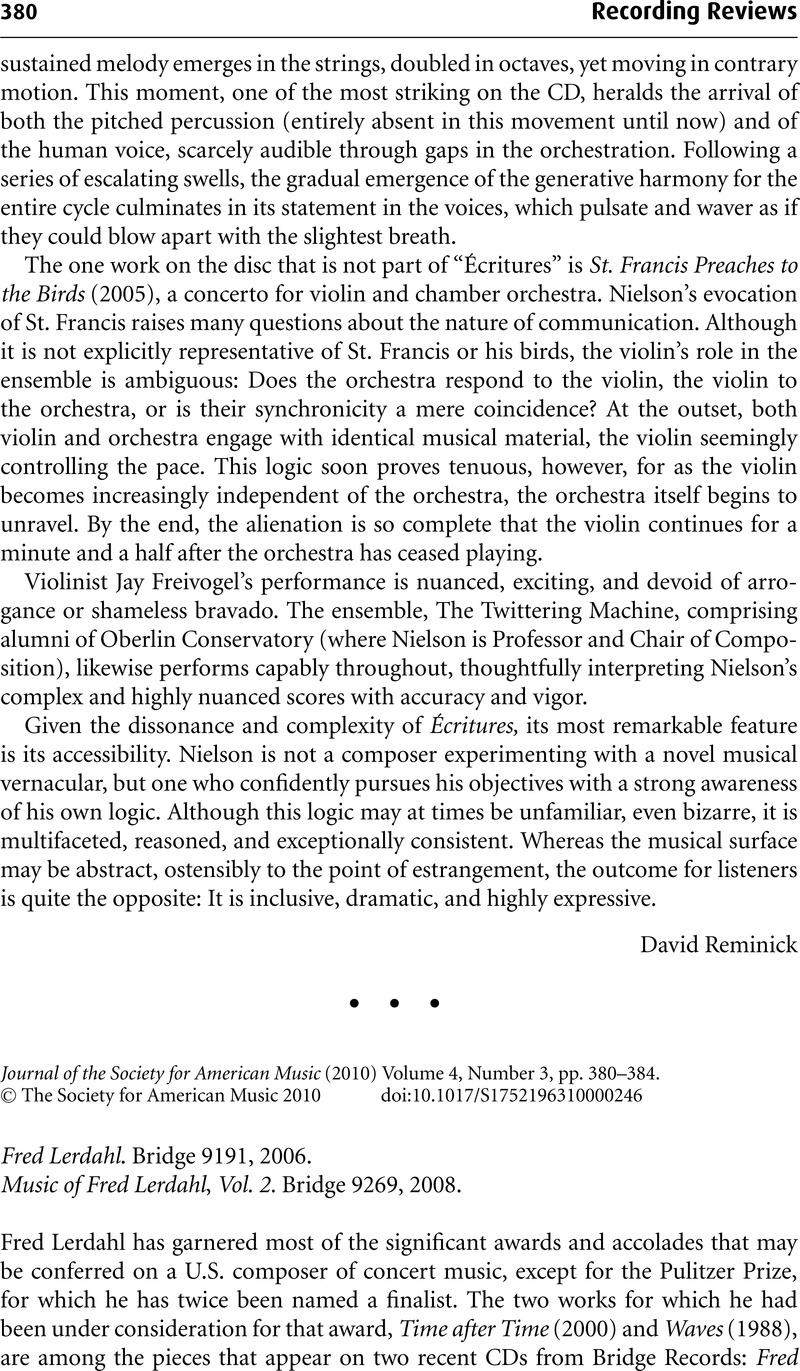No CrossRef data available.
Published online by Cambridge University Press: 15 July 2010

1 Lerdahl, Fred and Jackendoff, Ray, A Generative Theory of Tonal Music (Cambridge, Mass.: MIT Press, 1983)Google Scholar.
2 For a succinct account of Lerdahl's concerns as a composer and the manner in which they have descended from his activities as a theorist, see Fred Lerdahl, “Composing Notes,” Current Musicology 67/68 (1999): 243–51.
3 See, for example, the exchange between Lerdahl and fellow composer James Boros in Perspectives of New Music following Boros's unfriendly review of an issue of Contemporary Music Review dedicated to “the New Tonality”: Lerdahl, “Note from the USA Regional Editor,” Contemporary Music Review 6/2 (1992): 1; Lerdahl, “Cognitive Constraints on Compositional Systems,” Contemporary Music Review 6/2 (1992): 97–121; Boros, “A ‘New Tonality’?” Perspectives of New Music 33/1–2 (1995): 538–53; Lerdahl, “Tonality and Paranoia: A Response to Boros,” Perspectives of New Music 34/1 (1996): 242–51; and Boros, “A Response to Lerdahl,” Perspectives of New Music 34/1 (1996): 252–58.
4 Lerdahl, “Cognitive Constraints.”
5 Ibid., 115–18.
6 Lerdahl, “Composing Notes,” 245.
7 For examples of what Schoenberg meant (at least superficially with respect to the motive) when referring to “Developing Variation,” see Schoenberg, Arnold, Fundamentals of Musical Composition, ed. Strang, Gerald and Stein, Leonard (Boston: Faber and Faber, 1967), 8–19Google Scholar.
8 In “Composing Notes,” 247, Lerdahl explicitly invokes Hindemith's theory of harmonic fluctuation.
9 Fred Lerdahl, program note to Waves (Fred Lerdahl, Bridge Records, Bridge 9191, 2006).